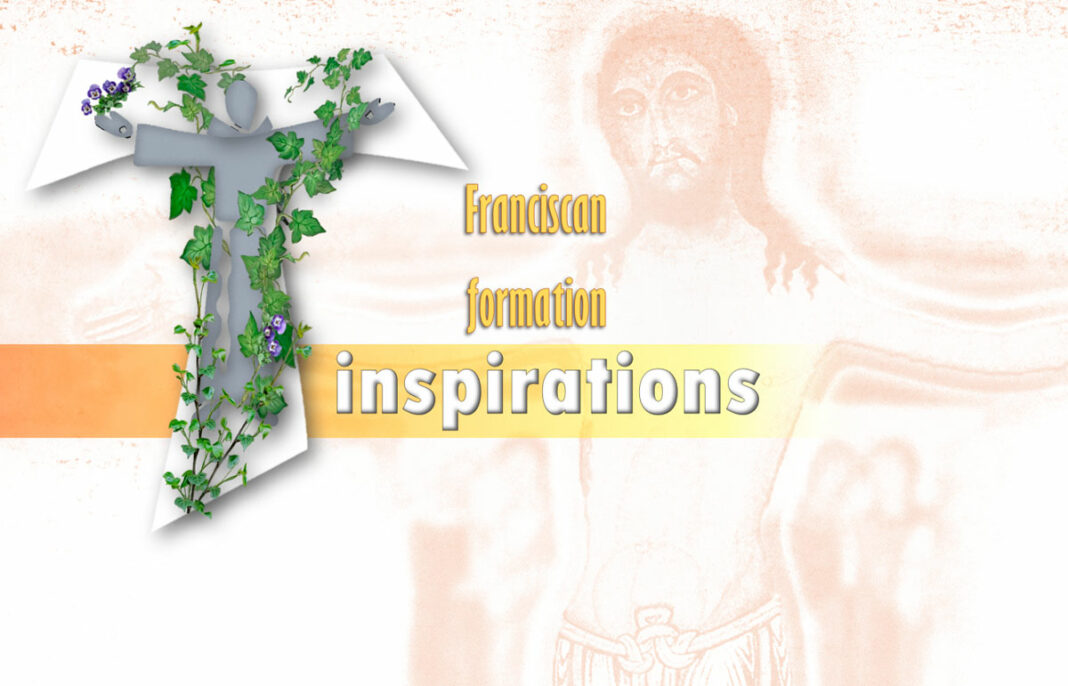Franciscan Formation – Inspirations (Part 2)
Study, Education and Formation
The fundamental goal of continuing formation is the renewal of the…[1]
Imagine a situation where the friars in a certain friary decide to renew their religious life. They have a House Chapter and talk about how to change their life. They decide to first re-read the Rule, the Constitutions and the current provisions in the Statutes and then present their proposals at the next House Chapter. When they get together again at the House Chapter, a debate breaks out. One friar suggests they should pray the whole Office. Another wants to celebrate Mass and Eucharistic Adoration together. A third suggests the friars do their house chores on their own time and that they wear the habit for prayers, meals, work and ministry. A fourth friar wants to do away with cars, get rid of useless and expensive things, and not use money. Still, another proposes that the friars give up their personal mobile phones and computers and use all such items in common, etc.
We might say such a friary would create strong external framework; a structure that one could lean on in order to grow spiritually, in a beautiful way. Many candidates could be drawn to such a friary, attracted by the witness of the community. However, some friars, satisfied with the perfection of their own community life, find themselves unwilling to live in other friaries. They claim that the friars in those houses do not live as perfectly as they ought to. They fight against their superiors who may be trying to send them to some other place. Eventually, these friars may try to create a new independent branch of the Order. There is, however, some danger in this kind of renewal. It involves various forms of triumphalism. It is easy to fall into the self-satisfaction of being better or holier than others or of having more vocations[2]. We know this from the history of our Order and elsewhere. I think many of us remember this ideal of spiritual life from our first years of formation in the Order. At that time, didn’t we sometimes look at the older friars and think that they were not as perfect as we were?
From its very beginnings, our Order has been imbued with a spirit of renewal. If we look at the lives of St. Francis of Assisi, his friars and successors, we can see that one of their defining characteristics was the desire to renew their relationship with Christ through penance. It seems, however, that over time, greater emphasis began to be placed on various external structures, structures that were meant to express the spirit of returning to a more zealous observance of the Rule. This has probably led us to a certain tendency: When we forget that our purpose is not religious observance, but belonging to Christ, we begin to organize life, for ourselves and others, “in our own way.” This is how history is reconstructed: We go from zealous and charismatic beginnings, through various controversies, crises and the creation of new documents, to the constant emergence of new reforms or alternatively, the death of an aging community.
Structures are undoubtedly needed and helpful. Yet, in living our own lives, they should serve to reinforce our inner strengths; so that we remain standing when such ideal support is lacking. We sometimes observe that zealous friars in initial formation quickly give up on religious life when there is no organized time for prayer, retreats or reflection. “Man as a Vine” might be a way to define this situation. A vine will grow upwards when tied to a stake it can climb for support. If you pull out the stake, the vine will fall. When we begin religious life, we are subjected to external influences. We acquire appropriate knowledge, skills and experience. We are programmed to learn, we are taught to behave properly, and we are trained to deepen our relationship with God. However, after the initial formation phase is over, we find ourselves increasingly placed in ministries and situations where such an ideally organized structure is lacking. Therefore, we need to rely on an internally reinforced structure, one that employs the word “self.” Meaning, we can continue to develop through self-study, self-education and self-formation. This becomes the lived content of our penance. It refreshes our spirit and contributes to the renewal of our evangelical life and therefore the renewal of the friars and the Order[3].
Friar Piotr STANISŁAWCZYK
Delegate General for Formation
[1] Cf. Order of Friars Minor Conventual Constitutions, Rome 2019 (no. 176).
[2] Cf. Pope Francis, Prado Fernando, The Strength of a Vocation: Consecrated Life Today, USCCB 2018, p. 83-85.
[3] Cf. Timothy Kulbicki, OFM Conv., Robert M. Leżohupski, OFM Conv., Commentary on the New and Revised Constitutions. Order of Friars Minor Conventual, Niepokalanów 2020, p. 297.














